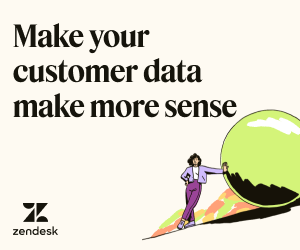In today’s business environment, making informed decisions is not just a strategic advantage—it’s a necessity. Enter Data-Driven Decision Making (DDDM), a paradigm that has reshaped howthe way organizations operate and strategize.
Definition of Data-Driven Decision Making (DDDM)
At its core, DDDM involves leveraging data and analytics to guide the decision-making process within a business. It goes beyond intuition and gut feelings, relying instead on the wealth of information that organizations generate and accumulate in the course of their operations. By systematically analyzing this data, businesses can uncover patterns, trends, and insights that form the bedrock of more informed and effective decision-making.
Importance of Data in the Modern Business Landscape
In an era where information is a powerful currency, the ability to harness and interpret data has become a defining factor in the success of businesses. DDDM isn’t just a buzzword; it’s a fundamental shift in how companies operate and compete. The modern business landscape is characterized by complexity, uncertainty, and rapid change, making the reliance on empirical evidence and quantitative analysis more crucial than ever.
As organizations grapple with unprecedented challenges and opportunities, those that embrace a data-driven approach gain a competitive edge. Whether optimizing internal processes, understanding customer behavior, or predicting market trends—, DDDM provides a roadmap for navigating the intricacies of the business world with precision and confidence. As we delve deeper into the facets of DDDM, we’ll uncover its transformative power and explore how it has become a cornerstone for achieving sustainable business success.
The Role of Analytics in Business Success
At the heart of data-driven decision making lies the pivotal role of analytics, acting as the compass that guides businesses through the vast sea of information towardtowards valuable insights and strategic choices.
Overview of Analytics Tools and Technologies
In the toolkit of analytics, diversity, and dynamism define the landscape, featuring an array of tools and technologies designed to extract meaning from data. From traditional business intelligence platforms to cutting-edge machine learning algorithms, these tools empower organizations to transform raw data into actionable intelligence.
- Business Intelligence (BI): Fundamental to analytics, BI tools offer a lens into historical data. Dashboards and reporting tools provide a comprehensive understanding of past performance, aiding in identifyingthe identification of trends and areas for improvement.
- Predictive Analytics: Casting a gaze into the future, predictive analytics leverages statistical algorithms and machine learning models to forecast trends. Whether predicting customer behavior or market fluctuations, this forward-looking approach enables proactive decision-making.
- Big Data Analytics: In an age of information abundance, big data analytics processes and analyzes massive datasets that traditional systems struggle to handle. This includes unstructured data such as social media posts, allowing for a more comprehensive understanding of customer sentiments and market dynamics.
- Prescriptive Analytics: Beyond predictions, prescriptive analytics recommends actions to optimize decision outcomes. By considering various decision options and their potential impact, businesses can choose the most advantageous course of action.
The integration of these tools creates a potent analytical ecosystem, providing businesses with the capability to unravel the complexities of their operations. As we delve into the impact of analytics on business success, we’ll explore specific use cases and examine how organizations harness these tools to gain a strategic edge in their respective industries.
Implementing a Data-Driven Culture
Fostering a data-driven culture requires a concerted effort, with organizational leadership playing a pivotal role in steering this transformative journey.
Leadership Commitment to DDDM
At the core of a data-driven culture is the unwavering commitment of organizational leaders to actively champion data-driven decision-making (DDDM). This commitment extends beyond rhetoric, necessitating data integrationthe integration of data into decision-making processes and cultivatingthe cultivation of a mindset that values evidence over intuition.
In leading by example, executives showcase a reliance on data in their decision-making processes, setting a standard for the entire organization. This demonstration not only establishes credibility, but also serves as a powerful motivator for others.
Investing in data literacy across all levels becomes imperative. Acknowledging the diverse skill sets within the organization, leaders should spearhead comprehensive programs encompassing training initiatives, workshops, and resource provisions to empower employees to navigate and comprehend data effectively.
Aligning incentives with the promotion of DDDM reinforces its importance. Leaders must ensure that recognition and rewards are intricately tied to data-driven achievements, creating a positive feedback loop that reinforces the integration of data insights into the organizational decision-making fabric.
Identifying and dismantling barriers hindering the adoption of DDDM is a responsibility that leaders shoulder. This involves addressing resistance to change, ensuring access to necessary resources, and fostering a culture that actively seeks continuous improvement.
Training and Skill Development for Teams
The efficacy of a data-driven culture is contingent upon the capabilities of the workforce. Empowering teams with the right skills and knowledge becomes imperative for successfully navigating the intricacies of the data landscape.
Customized training programs designed to address the specific needs of different teams within the organization are essential. Whether focusing on basic data literacy or delving into advanced analytics, targeted training ensures that teams are equipped with the precise tools needed for their roles.
Access to learning resources beyond formal training is critical. Teams should have ready access to a diverse array of learning resources, including online courses, documentation, and interactive platforms that enable employees to continually enhance their data skills at their own pace.
Encouraging cross-functional collaboration among teams with varied skill sets fosters a holistic understanding of data across the organization. Cross-functional projects provide opportunities for individuals to learn from each other and apply their skills in real-world scenarios, breaking down silos and enhancing the collective data intelligence of the organization.
Establishing mentorship programs that connect seasoned data professionals with those eager to enhance their skills expedites skill development and cultivates a culture of knowledge-sharing within the organization.
By interweaving the fabric of leadership commitment and continuous skill development, organizations can craft a resilient and adaptable data-driven culture that permeates every facet of the workforce. In the following sections, we’ll delve into the tangible benefits of such a culture and explore how it translates into actionable insights for organizational success.
Benefits of Data-Driven Decision Making
In the dynamic landscape of modern business, the adoption of Data-Driven Decision Making (DDDM) yields a myriad of tangible benefits, reshaping the way organizations operate and excel.
Improved Decision Accuracy and Speed
The marriage of data and decision-making results in a profound enhancement of decision accuracy and speed. By leveraging historical data, current trends, and predictive analytics, organizations can make informed choices with a heightened level of precision. This accuracy not only minimizes the risk of errors, but also ensures that decisions align closely with organizational goals and market realities.
Speed is a crucial companion to accuracy. Traditional decision-making processes can be time-consuming, often hindering the organization’s ability to respond promptly to market shifts. With data-driven insights, decisions are accelerated, enabling businesses to seize opportunities swiftly and navigate challenges with agility. Real-time analytics empowers leaders to make decisions at the pace demanded by the fast-evolving business environment.
Enhanced Operational Efficiency and Cost Savings
Data-driven decision-making acts as a catalyst for enhanced operational efficiency and significant cost savings. By analyzing operational data, organizations can identify inefficiencies, streamline processes, and optimize resource allocation. This leads to a more efficient use of time and resources, ultimately contributing to cost reductions.
Predictive analytics plays a pivotal role in resource optimization. By forecasting demand, businessesorganizations can align their resources accordingly, preventing overstaffing or underutilization of assets. This proactive approach not only maximizes operational efficiency, but also mitigates unnecessary costs.
Moreover, the ability to track key performance indicators (KPIs) in real-time allows companiesorganizations to identify areas where cost-saving measures can be implemented without compromising overall effectiveness. This data-driven approach to cost management ensures that decisions are grounded in a comprehensive understanding of the financial implications, fostering a culture of fiscal responsibility.
Closing Thoughts
By fostering a data-driven culture from the top down, investing in continuous skill development, and recognizing the tangible benefits that DDDM brings, businesses can position themselves not only to survive, but to thrive in an era defined by data.
In the constantly changing narrative of business management, DDDM stands as a beacon, guiding organizations towards a future where decisions are not just informed, but empowered by the wealth of insights that data provides. As businesses navigate the complexities of their respective industries, the integration of DDDM becomes not just a strategy— but a cornerstone for sustained and transformative success.






























































